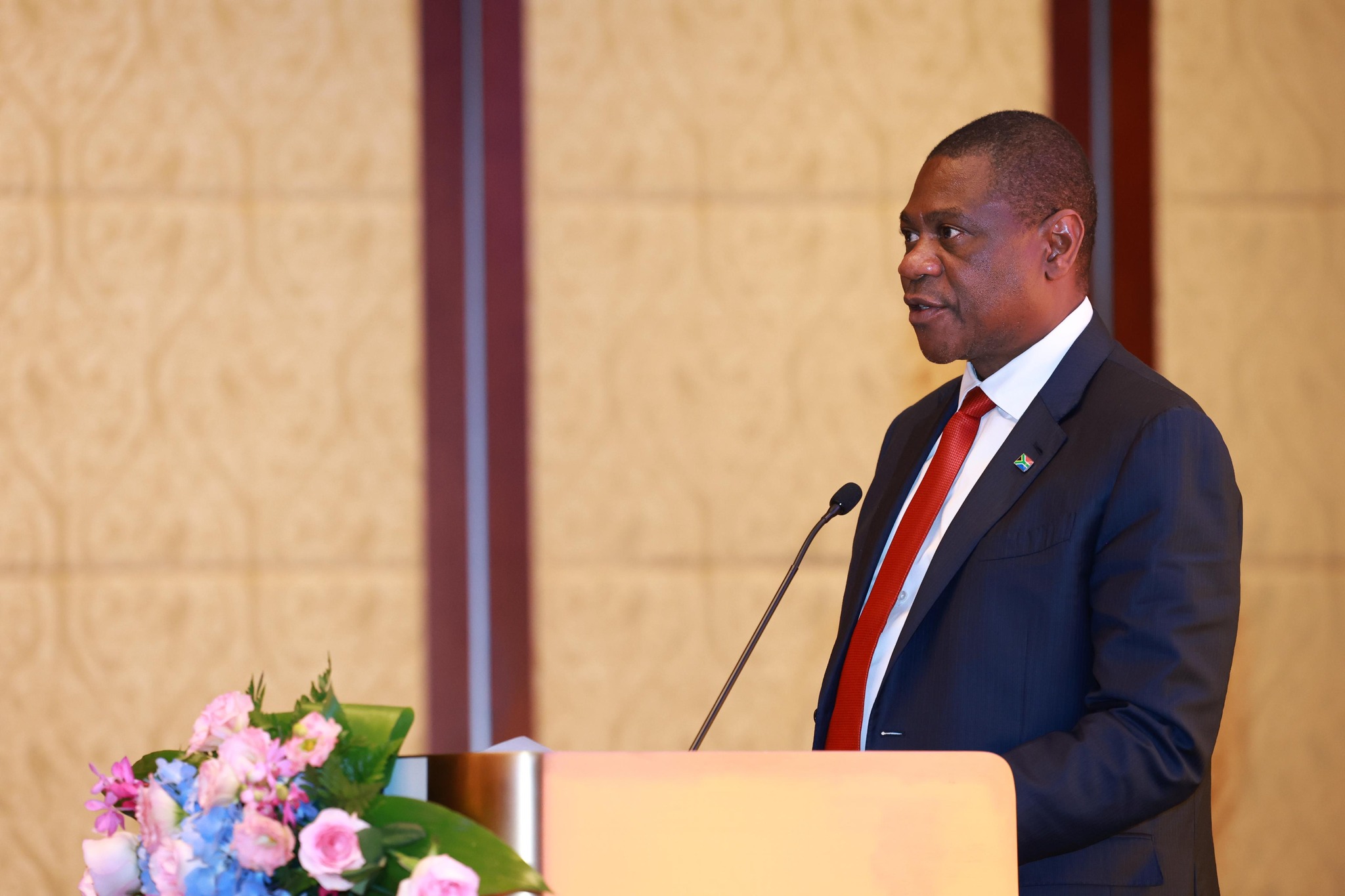Mashatile: SA-China Must Shift From Raw Trade to Industrial Cooperation
“South Africa and China are at a pivotal moment to redefine our economic partnership — from raw material trade to co-industrialisation,” Mashatile said.

- Country:
- South Africa
In a bold appeal for deeper and more equitable collaboration, South Africa’s Deputy President Paul Mashatile has called for a shift in the country’s longstanding economic relationship with China — moving beyond the export of raw materials to joint industrialisation, technological cooperation, and green economy transformation.
Speaking at a strategic working dinner in Beijing hosted by the Industrial and Commercial Bank of China (ICBC) and Standard Bank at the China World Summit Wing Hotel, Mashatile laid out a vision for a redefined economic partnership that would position South Africa as a manufacturing and innovation hub and China’s gateway to Africa.
“South Africa and China are at a pivotal moment to redefine our economic partnership — from raw material trade to co-industrialisation,” Mashatile said. “Together, we can pave the way for a brighter future that brings prosperity to our people and strengthens the bonds between our nations.”
A Visit With Strategic Purpose
Deputy President Mashatile is currently on an official working visit to China, which began on Monday, with the primary aim of strengthening bilateral relations and enhancing economic cooperation between the two countries. The visit is part of a broader South African effort to advance industrial development, reduce trade deficits, and build strategic alliances in high-growth sectors.
During the dinner event, attended by Chinese and South African business leaders, Mashatile emphasized the importance of forging strong partnerships in priority sectors such as:
-
Battery manufacturing and green hydrogen
-
Critical minerals and renewable energy
-
Metallurgy and smelter revitalisation
-
Infrastructure development and rail modernisation
-
Technology transfer and export diversification
Tapping Into Strategic Sectors for Mutual Benefit
Mashatile encouraged Chinese financial institutions and corporations to translate dialogue into action by investing in projects that create jobs, localise manufacturing, and support South Africa’s industrial goals.
“Let us turn commitments into concrete projects that create jobs, transfer technology, and position South Africa as China’s gateway to Africa,” he urged.
He highlighted metallurgy and smelter revitalisation as sectors with strong potential, given South Africa’s abundance of mineral resources — including platinum group metals, manganese, and rare earth elements — which are essential for clean energy technologies.
A Trade Relationship Needing Rebalancing
While acknowledging the strength of current bilateral trade — US$34 billion in 2024, with US$13.21 billion in Chinese FDI into South Africa — Mashatile also drew attention to the trade imbalance that continues to disadvantage South Africa.
“A notable aspect of the trade relationship is the imbalance, where South Africa exports primarily raw materials to China and imports manufactured goods, creating a trade deficit for South Africa,” he said.
He emphasized the need to promote value-added exports and enhance South Africa’s manufacturing capabilities, ensuring that local beneficiation becomes central to the relationship going forward.
Leveraging China’s Financial Expertise
The Deputy President praised the financial institutions present — notably ICBC and Standard Bank — for their market insights, capital mobilisation capacity, and infrastructure financing expertise, which can be critical enablers for advancing South Africa’s economic ambitions.
The platform, he said, offered an opportunity to jointly design bankable, high-impact projects across sectors including water and sanitation, green energy, and logistics infrastructure, in line with national development plans and African Union frameworks.
Advancing Through FOCAC and Shared Goals
Mashatile positioned this engagement within the broader framework of the Forum on China-Africa Cooperation (FOCAC), which prioritizes infrastructure connectivity, industrial capacity development, and digital cooperation. He said that both countries should work to ensure that projects agreed under FOCAC are implemented and aligned with sustainable development outcomes.
“Through recognising and capitalising on key sectors, we can create an environment where both our economies benefit and we progress towards our shared objectives,” he said.
Green Industrialisation: The Next Frontier
Highlighting South Africa’s growing renewable energy industry and rich reserves of critical minerals, the Deputy President invited Chinese investors to take part in the country’s green industrialisation strategy. He noted that with the right investments in technology, skills development, and innovation ecosystems, South Africa can become a continental leader in clean energy manufacturing.
Mashatile cited opportunities in:
-
Solar PV manufacturing and battery storage
-
Hydrogen fuel cell production
-
Decentralised renewable energy systems
-
Sustainable mining and processing of rare minerals
He stressed that this green shift must also bring with it local job creation, skills training, and inclusive participation, especially among youth and small enterprises.
Towards Shared Prosperity Through Partnership
Concluding his address, Deputy President Mashatile reaffirmed his belief in the transformational potential of strategic partnerships, especially when built on mutual respect, long-term vision, and shared prosperity.
“There is potential for us to form partnerships that are beneficial to both parties if we capitalise on our skills and explore new ways of working together,” he said. “Through partnership and working together for a common purpose, we can realise the full potential of both our countries.”
The visit continues with high-level engagements focused on investment facilitation, project finance, and policy alignment, paving the way for a recalibrated South Africa-China relationship grounded in co-industrialisation and sustainable development.










